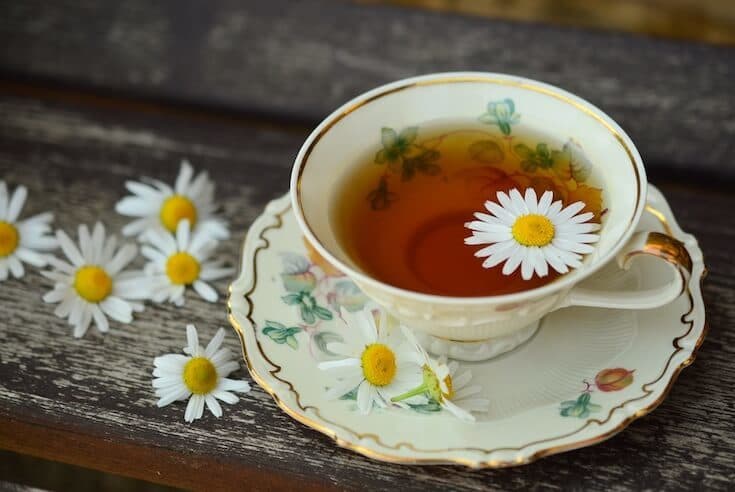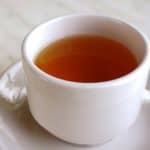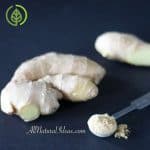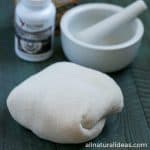The chamomile tea sleep remedy has been used for centuries. But is your grandma’s favorite sleepytime beverage really effective or is it just hyped folklore?
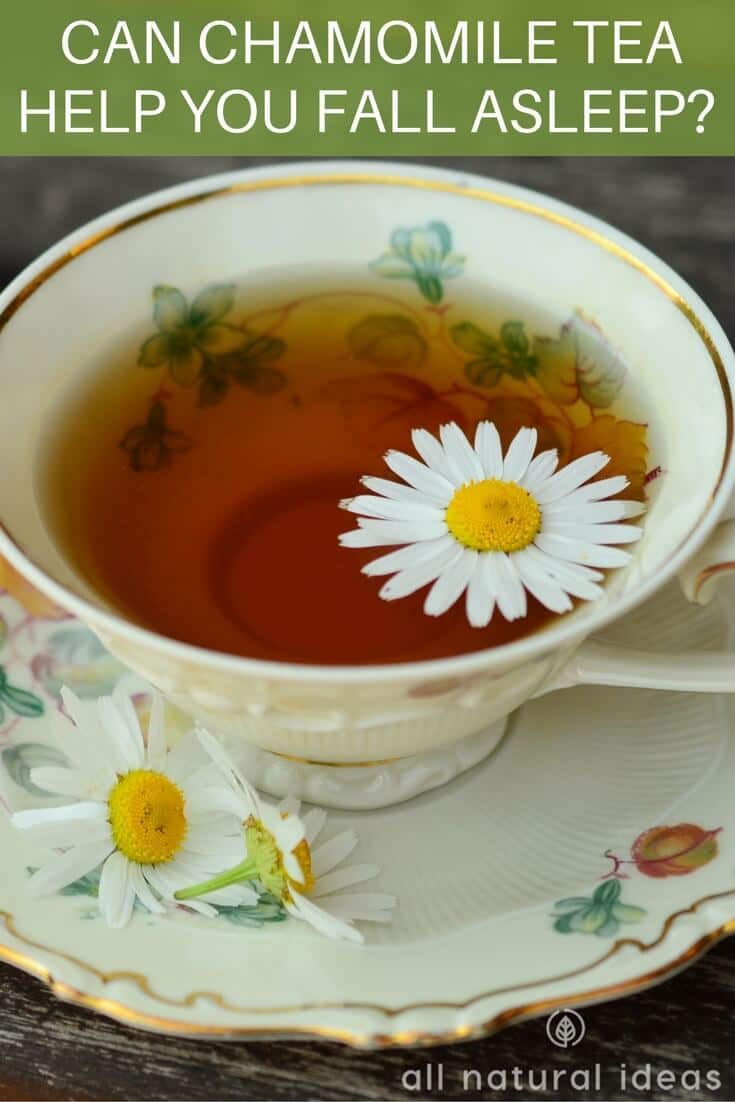
Having trouble falling asleep? Ditch the toxic Xanax and Valium. Instead, drink a cup of chamomile tea.
The favorite medicinal tea of grandmother’s worldwide, chamomile tea contains compounds that help calm your body. And it’s not just alternative health that swears by the chamomile tea sleep remedy.
Modern research studies prove chamomile folkloric uses. These studies validate the widespread use of chamomile, not only for sleep, but other uses as well.
In fact, according to this study, people across the globe consume more than one million cups of chamomile tea every day.
The traditional uses and benefits of chamomile tea include:
- Anti inflammation
- Digestive aid
- Muscle spasm reduction
- Cold treatment
- Ease diarrhea
- Eczema relief
- Hemorrhoid improvement
- Sore throat soothing
- Wound healing
The University of Maryland Medical Center’s (UMMC) website says the following about chamomile:
“Although chamomile is popular, there are not many studies that look at whether it works to treat these conditions.”
However, the UMMC website goes on to say that animal studies have shown that German chamomile reduces inflammation. It also speeds wound healing and reduces muscle spasms. In addition, it serves as a mild sedative to help with sleep.
But few studies, says UMMC, have investigated whether the same is true in people.
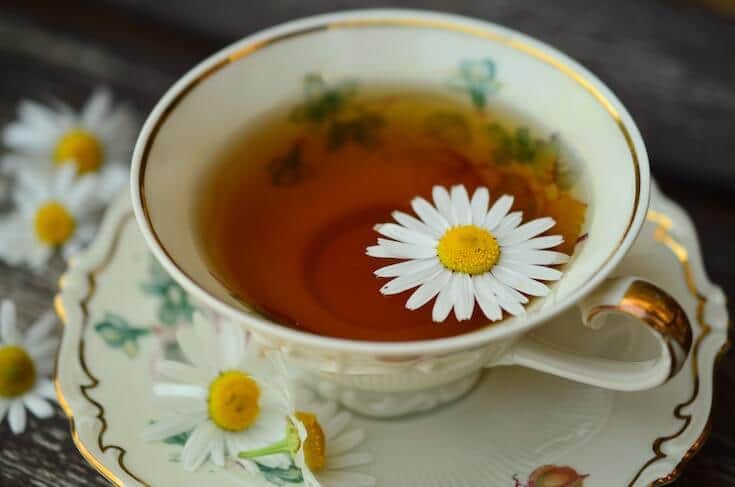
In fact, there’s only one conclusive study supporting the chamomile tea sleep remedy. Still, the fact that people have been using the tea to fall asleep for centuries should not be discounted. Anecdotal evidence matters.
Science behind the chamomile tea sleep remedy
Research demonstrates chamomile tea induces relaxation in blood vessels. It also helps smooth muscle fibers relax. Because of these properties, it can help prevent spasms. In essence, chamomile tea is a sedative and sleep-inducer. If you drink chamomile tea, one side effect is that you might feel like you’re mildly tranquilized.
In fact, some professional aromatherapists and other alternative health practitioners use chamomile oil to treat insomnia.
What’s in chamomile tea that helps induce sleep?
Flavonoids are plant compounds that contain properties like antioxidants. One of those flavonoids in chamomile tea is called ‘apigenin.’ This special compound binds to certain receptors in your brain. These particular receptors are the same ones that make you feel woozy when you take Xanax or Valium. Both of these drugs are in a class of drugs called “benzodiazepine,” or ‘benzo’ for short.
Chamomile tea acts on these “benzo” receptors in the brain. And in preliminary studies, chamomile demonstrates the ability to depress the central nervous system. It also can prevent convulsions.
One of the only tests involving human subjects drinking chamomile tea shows promising results. Ten cardiac patients immediately fell into a deep sleep after drinking chamomile. And while chamomile oil isn’t as popular as the tea, it has shown remarkable stress-reduction properties.
This study concludes inhaling vapor of chamomile oil reduces a particular stress hormone (ACTH). Furthermore, one of the main neurotransmitters in your brain that helps you relax, GABA, binds to chamomille. This action is the reason why it may feel like chamomile tea acts as a sedative.
Chamomile tea for anxiety
Using the chamomile tea sleep remedy is one thing, but is there proof that it can also treat anxiety?
To date, there’s one clinical trial that proves chamomile reduces anxiety. But there are two different strains of chamomile. One is German, the other is Roman or English. German chamomile in particular has been documented to treat generalized anxiety disorder (GAD). The limited results suggest that chamomile can help treat mild to moderate anxiety. However, it’s not known if chamomile can make any difference in cases of severe anxiety.
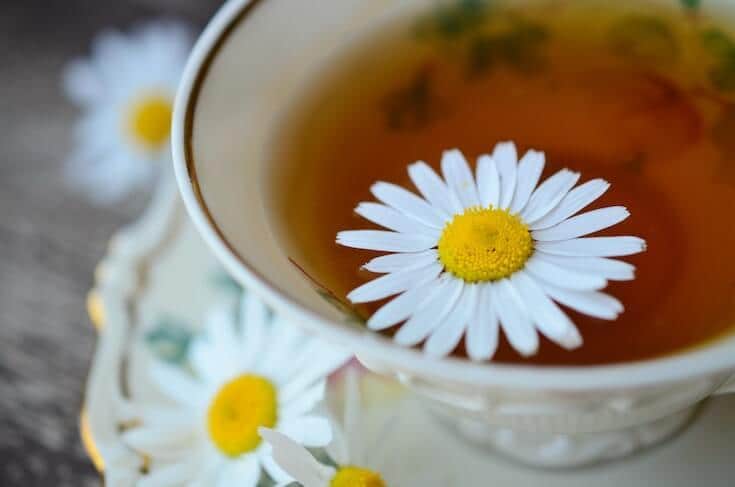
Chamomile tea: is it caffeinated?
No. Chamomile tea does not naturally contain caffeine. If it did, it would likely not help you fall asleep. Likewise, it would not help people with clinically-diagnosed anxiety.
The chamomile tea sleep remedy is a non-toxic all-natural solution. It’s also very affordable and has virtually no side effects, in comparison to pharmaceutical sleep aids. Furthermore, it’s very easy to use. Boil water. Add a tea bag and steep for 10-15 minutes. Or, use dried organic chamomile leaves and add a few teaspoons of it to the boiling water.
Although chamomile tea is herbal, any natural ingredient may result in harmful side effects. However, having a few cups of chamomile tea per day is unlikely to cause you any harm.
As for the flavor of it, chamomile tea is mild. It appears golden after steeping. The taste is similar to apple. If you have a hectic, busy day, you might want to drink black tea, which naturally contains caffeine. Save the soothing chamomile for nighttime.
Chamomile tea during pregnancy
There are some anecdotal reports on the Internet of chamomile inducing labor. But there is no proof that it brings baby into the world sooner than expected. However, it’s always best to consult your midwife or medical professional to be sure. If you’re approaching your delivery date and want to start laboring, perhaps it’s worth having a cup of chamomile. However, because it has calming properties, logic would have it that chamomile would not expedite the labor process.
Your doctor may not be sure about chamomile effects on delivery. Still, it’s best to ask your doctor first anyway. Better yet, consult with a master herbalist who has extensive knowledge and experience with chamomile.
The good news is if you’re about to deliver, you can look forward to getting some good sleep soon with chamomile. According to this study of 80 Taiwanese postnatal women with poor sleep quality, chamomile tea alleviates depression and improves sleep.
